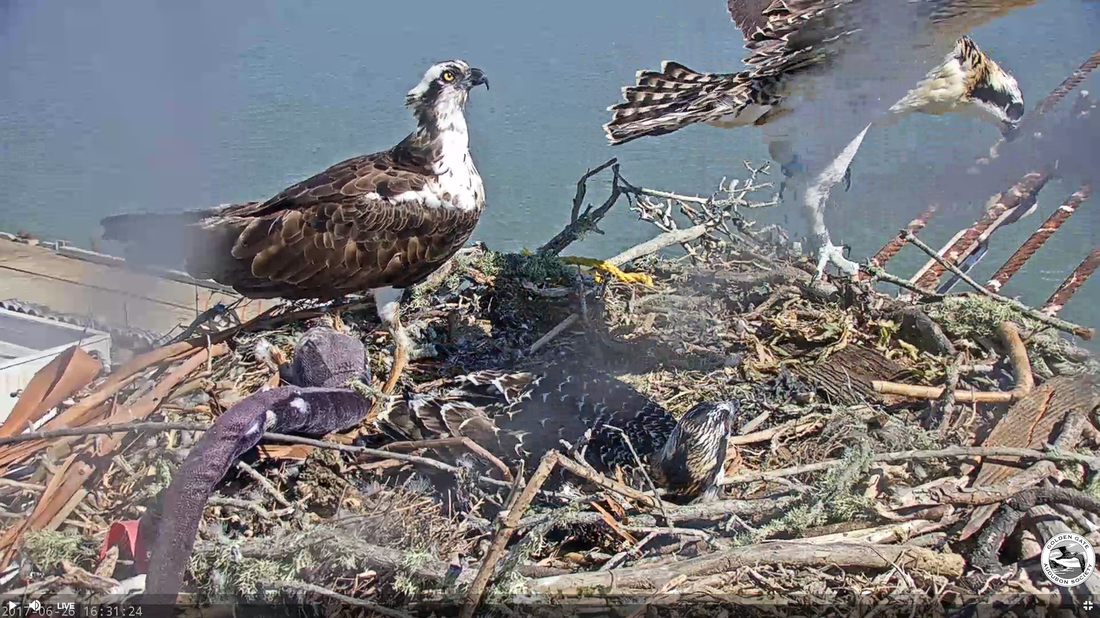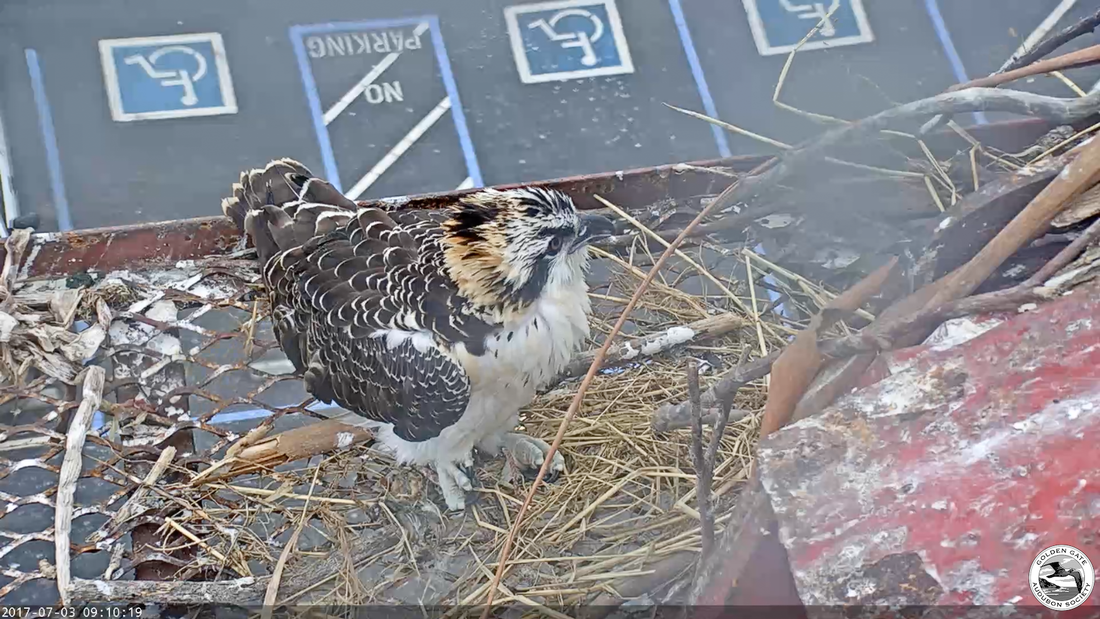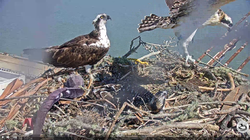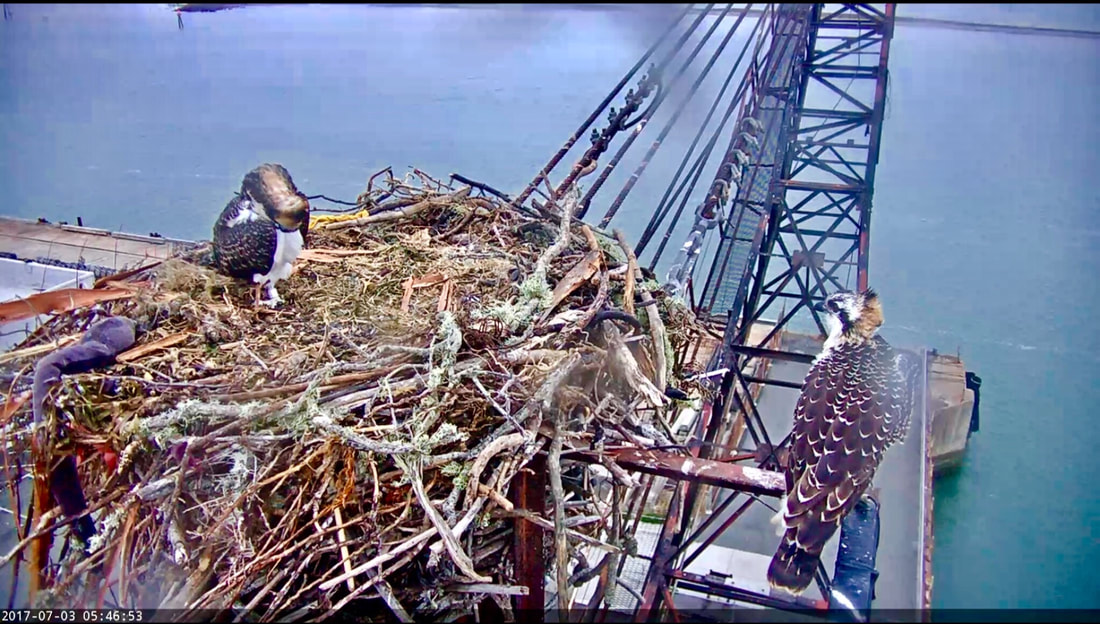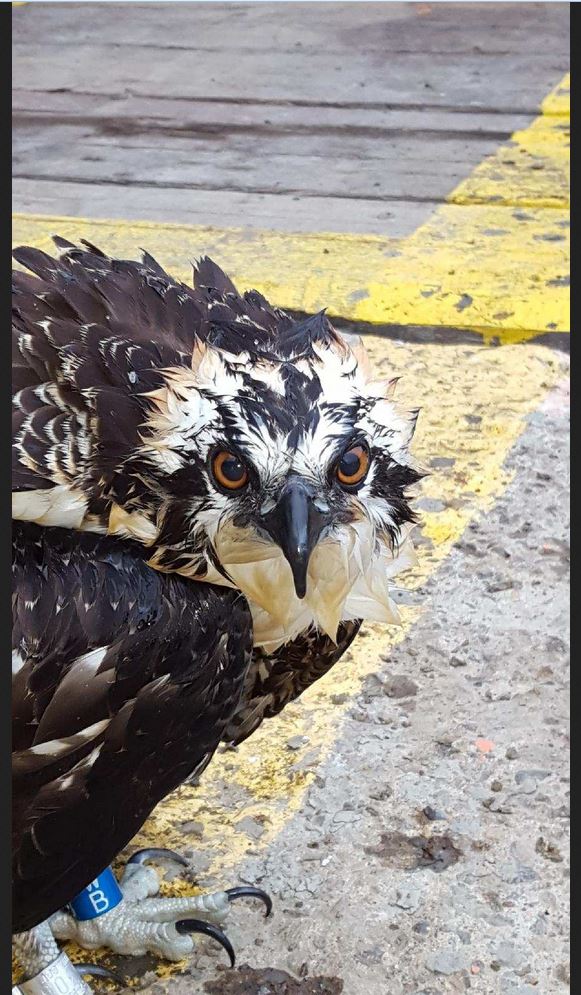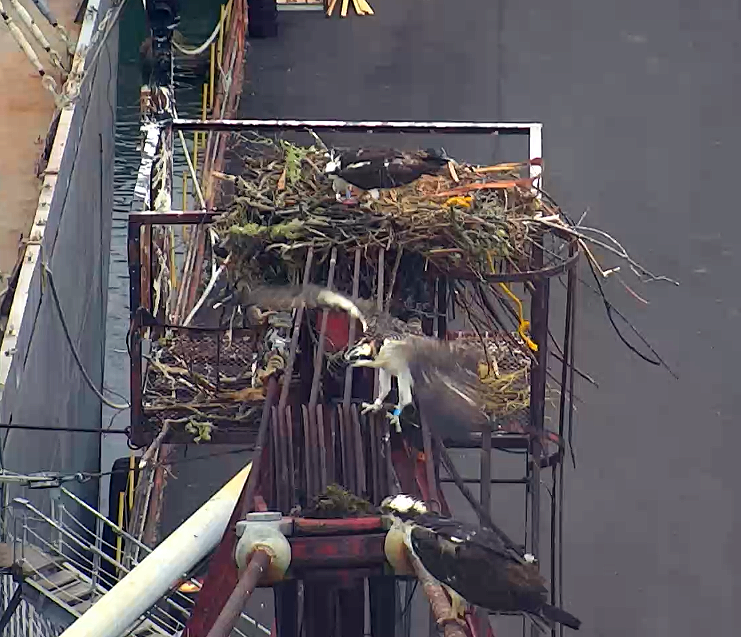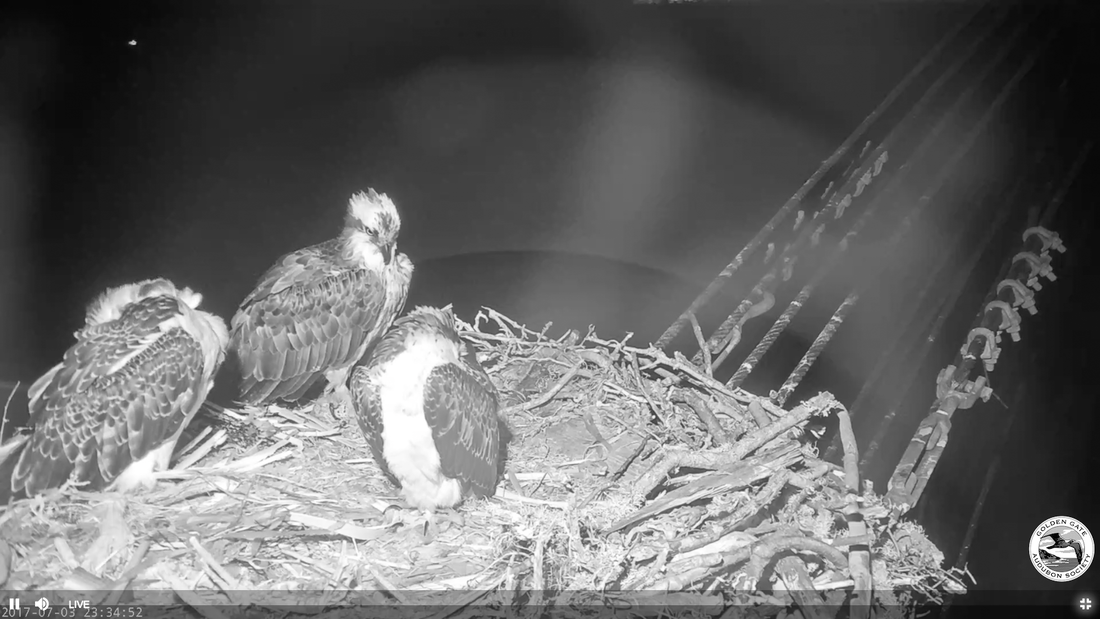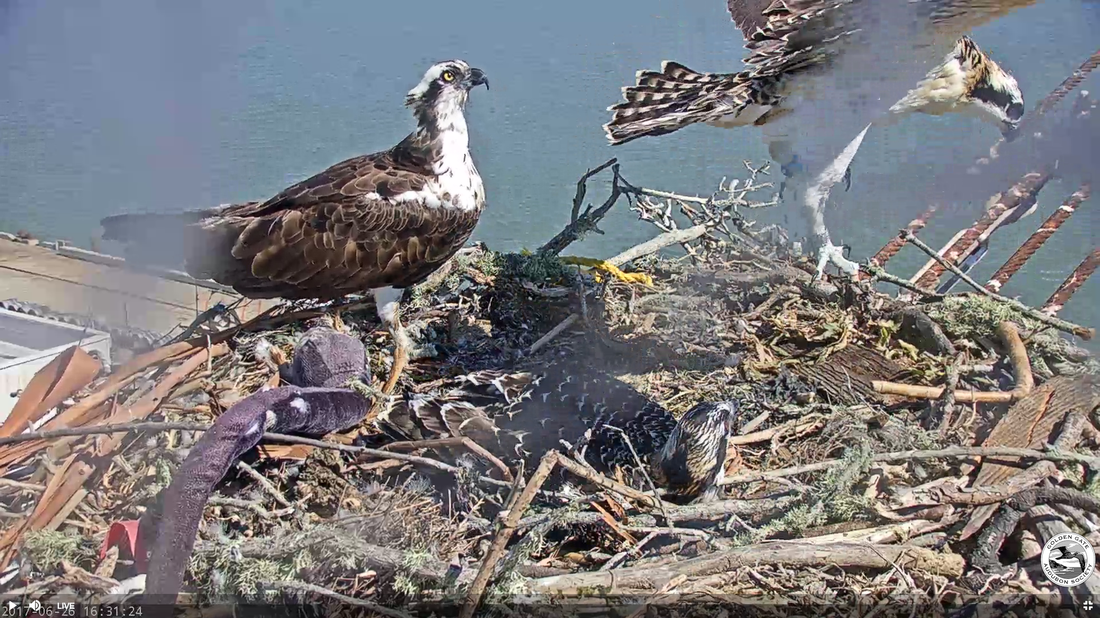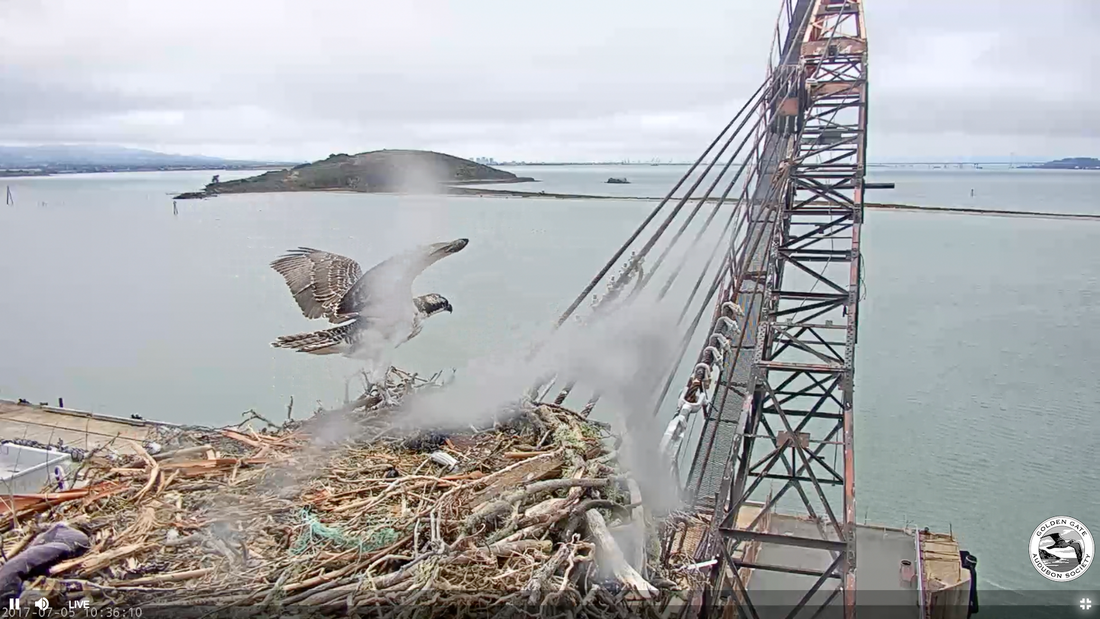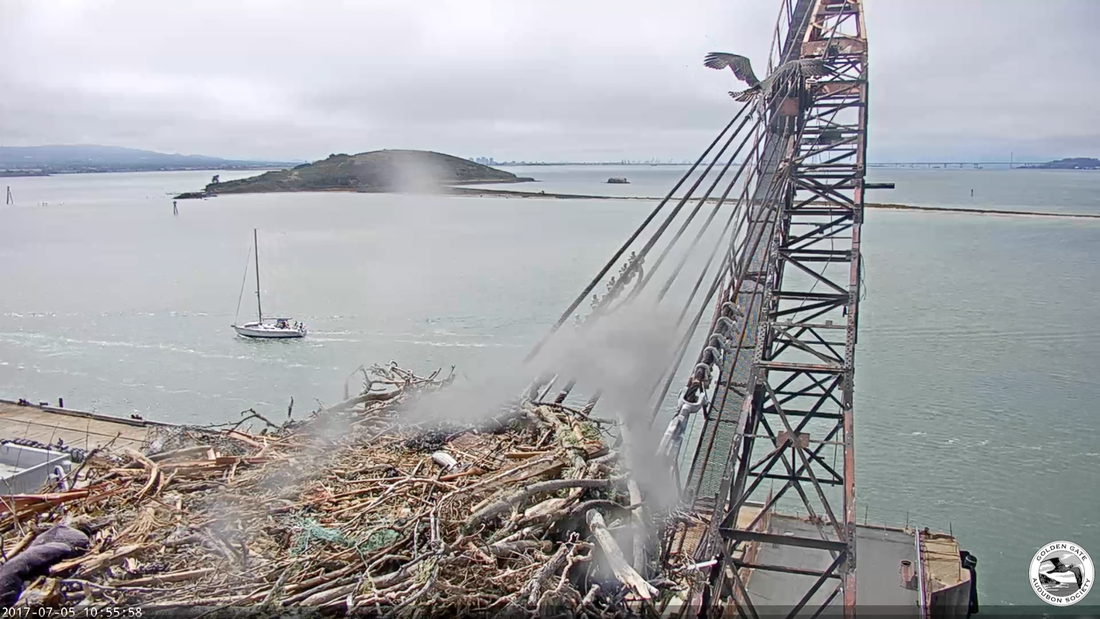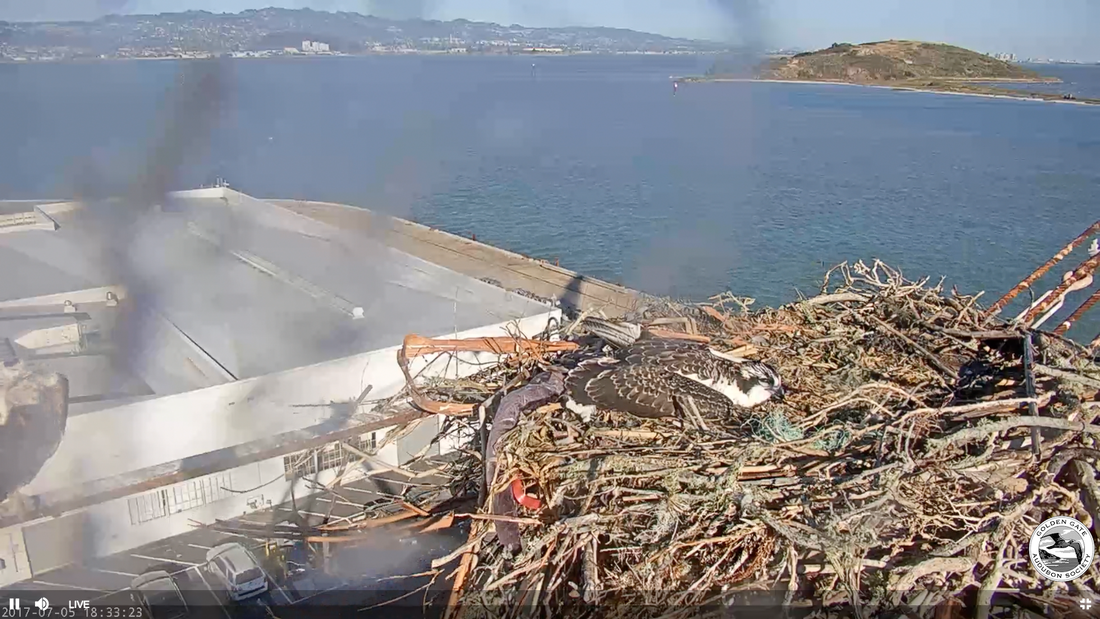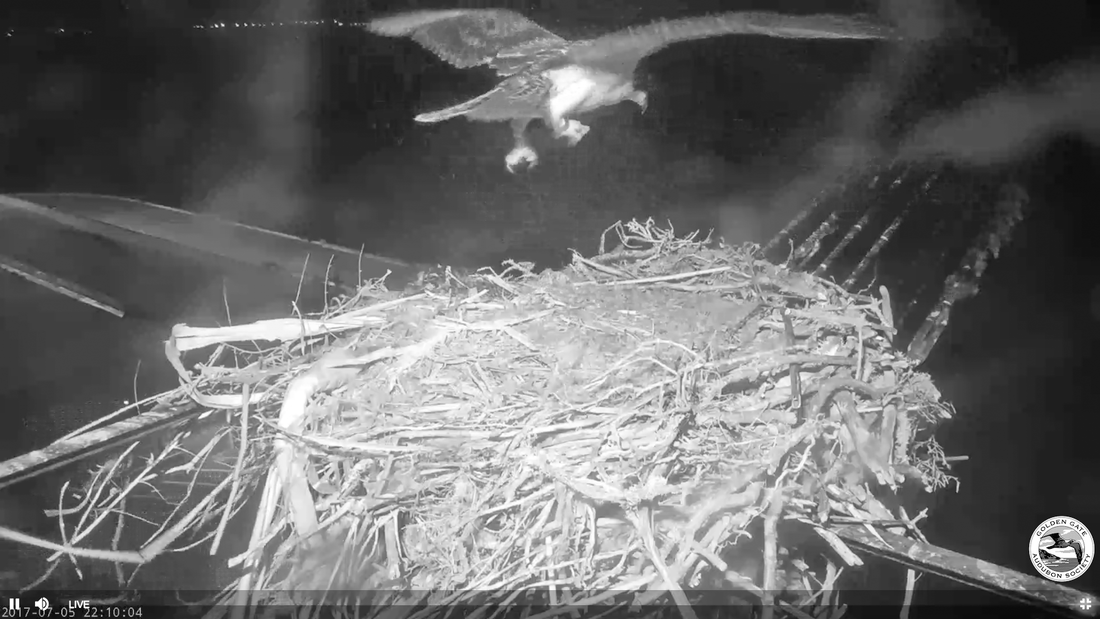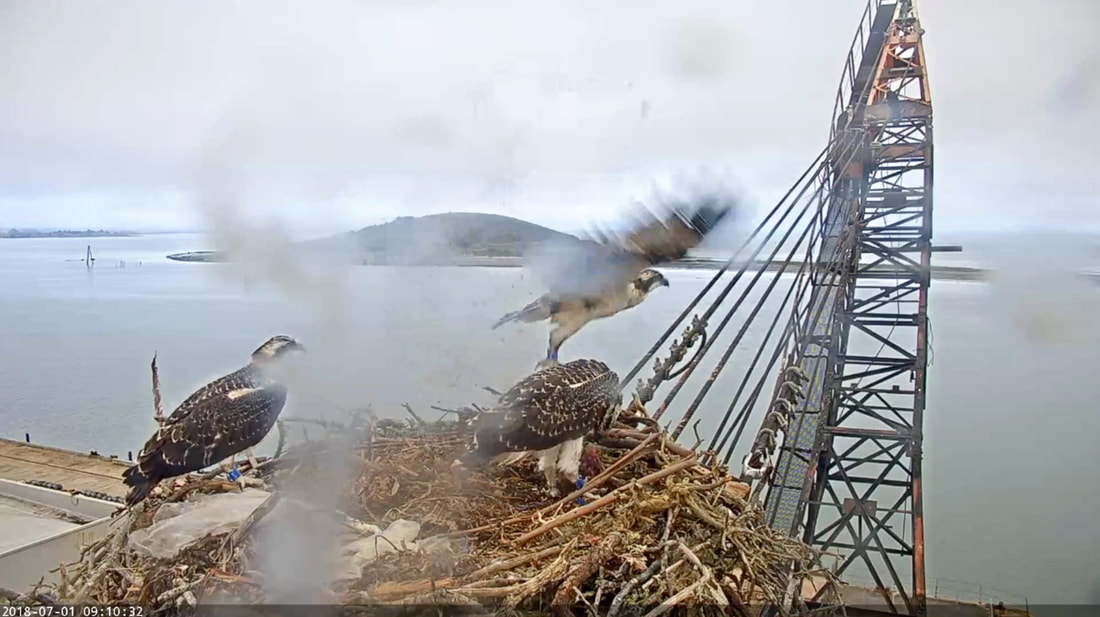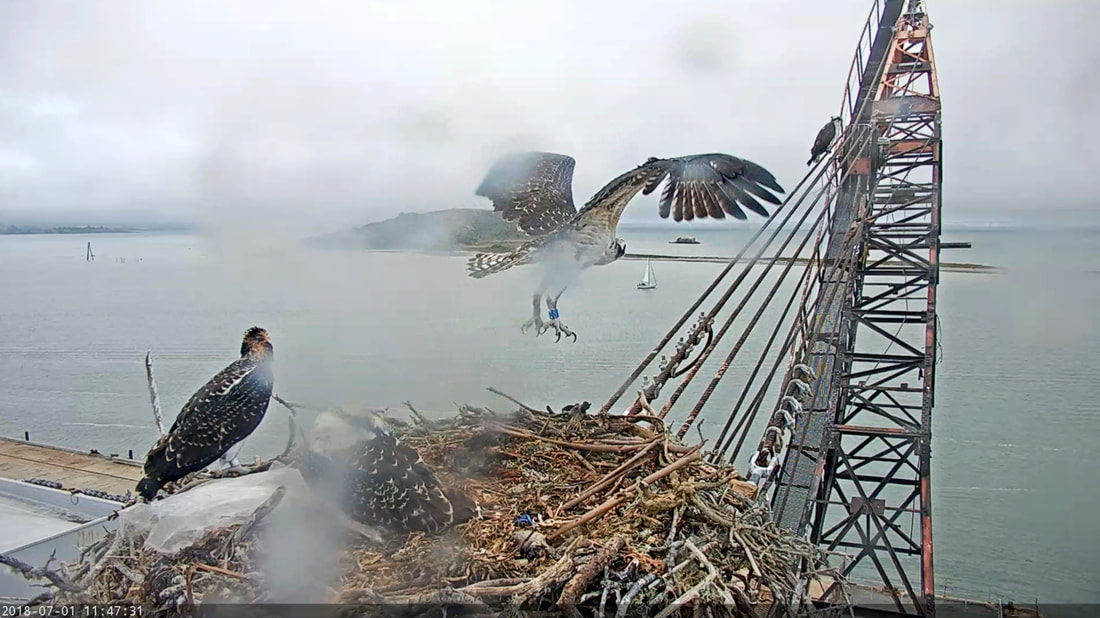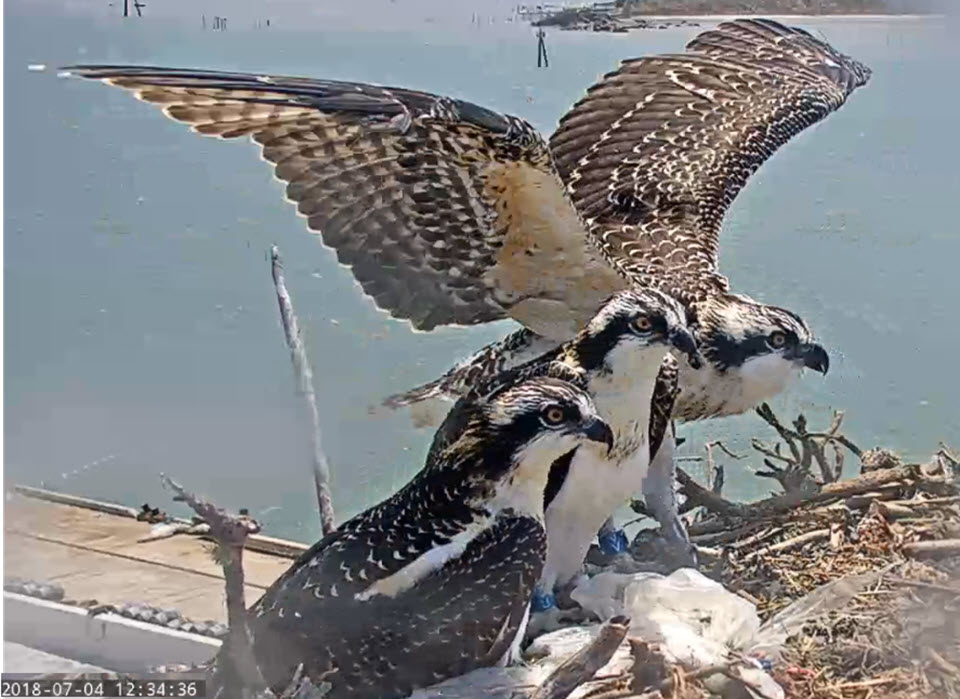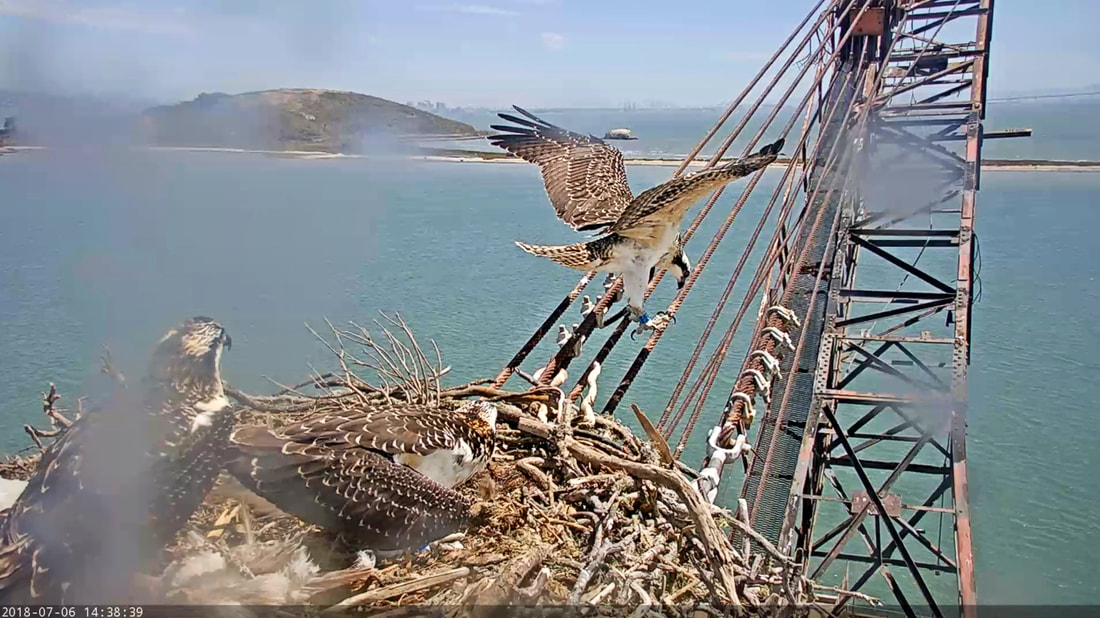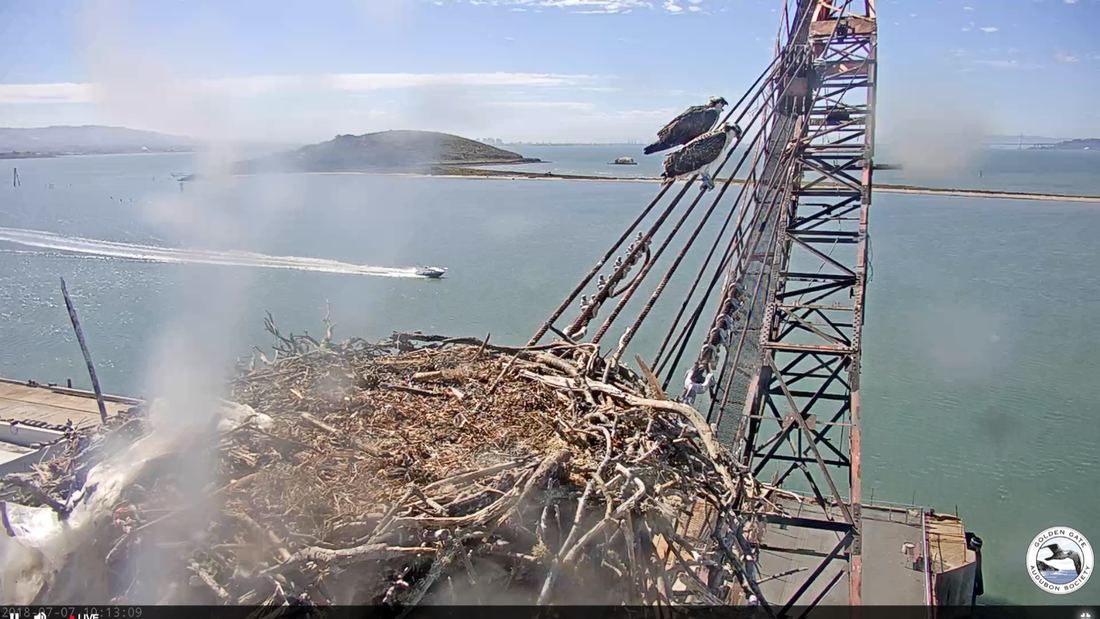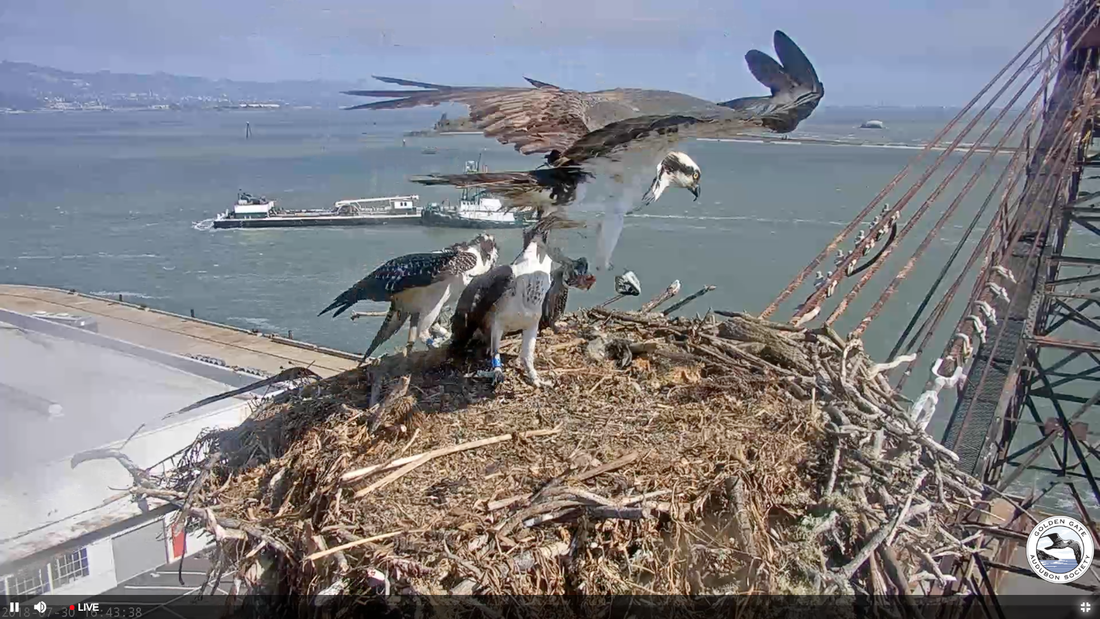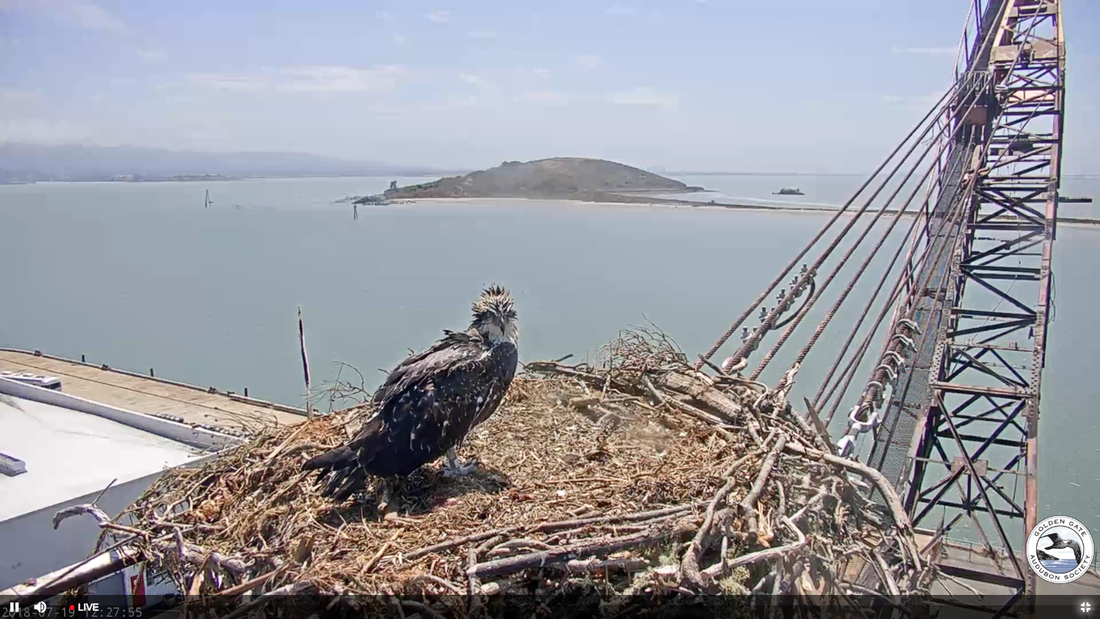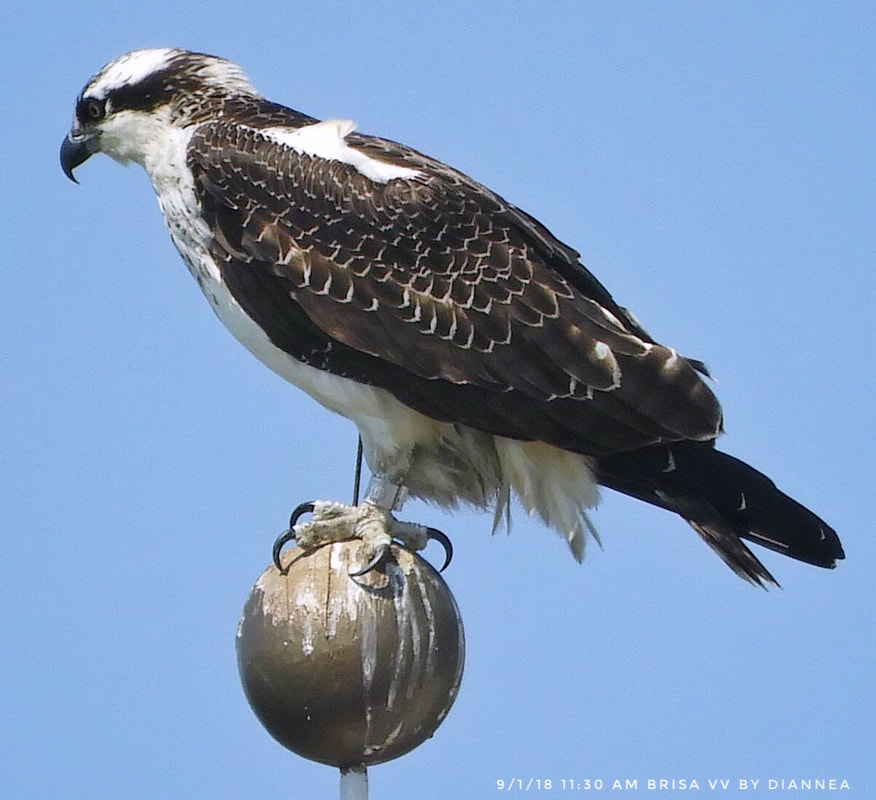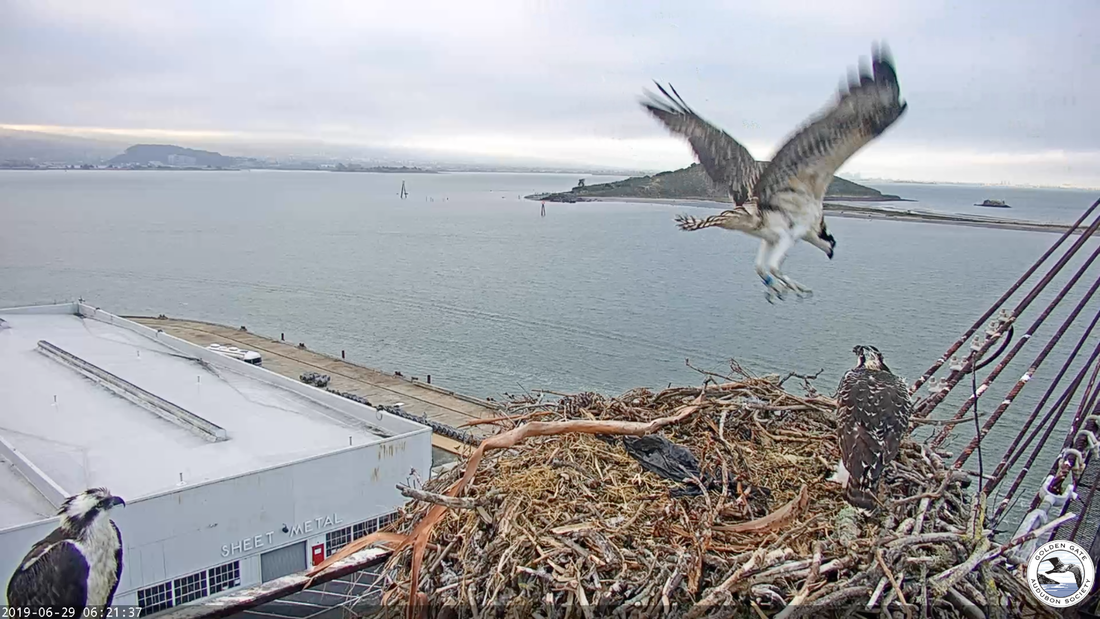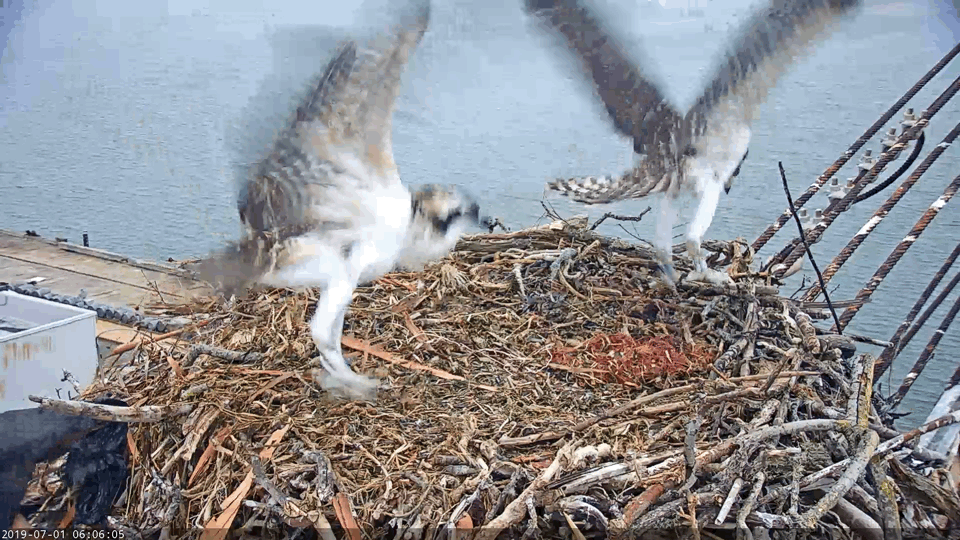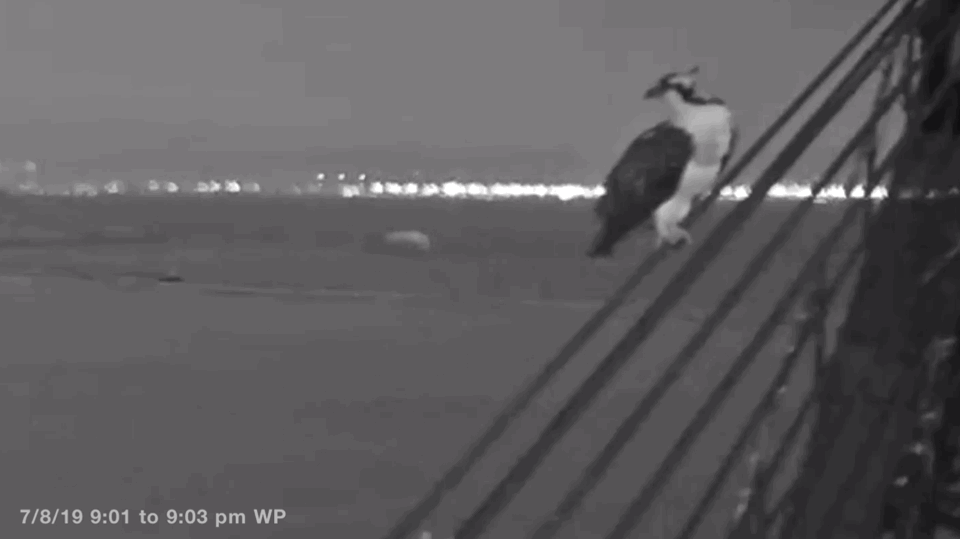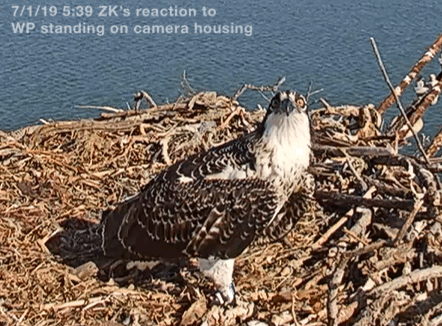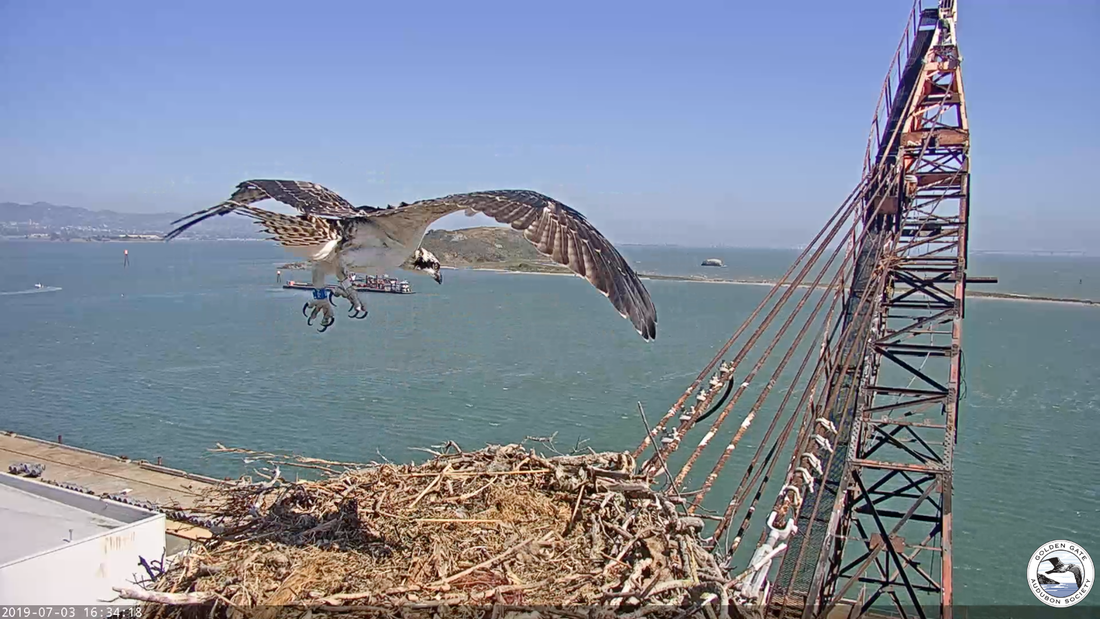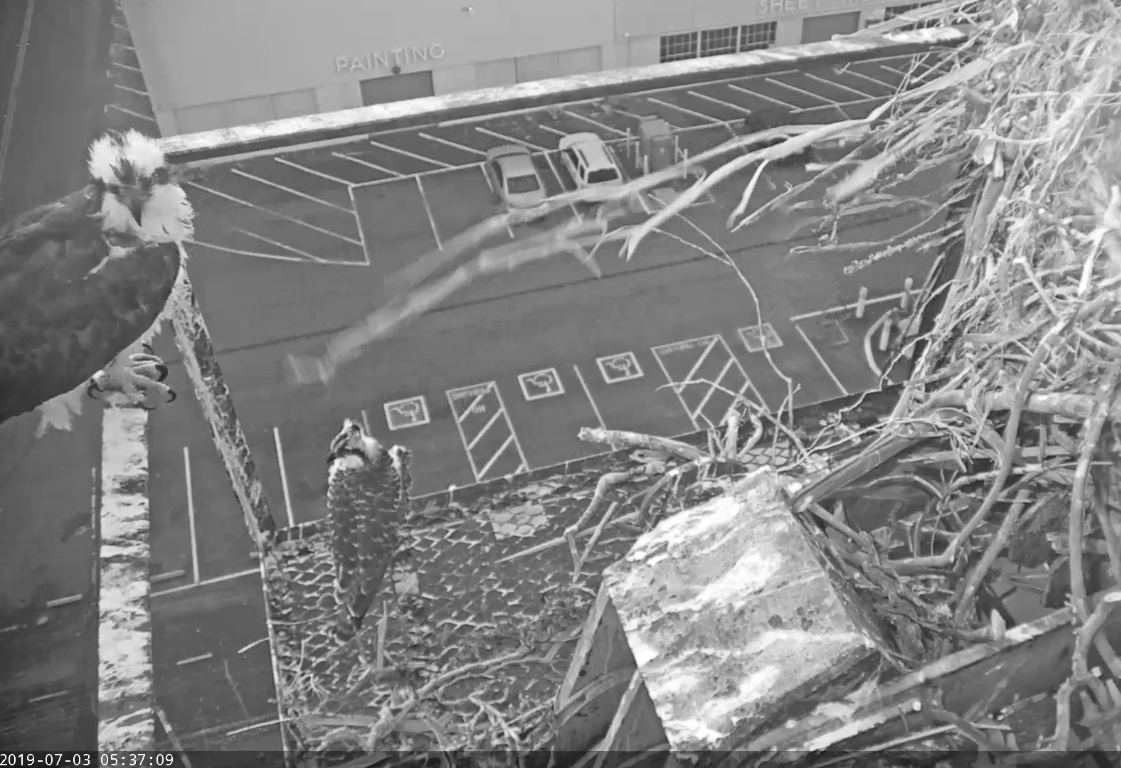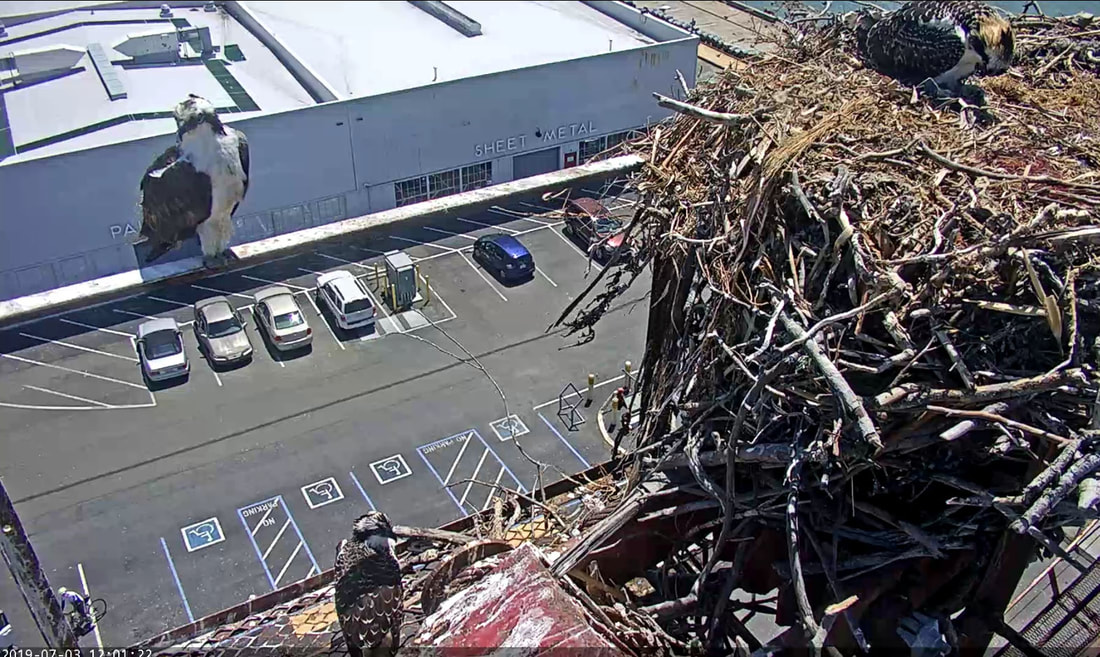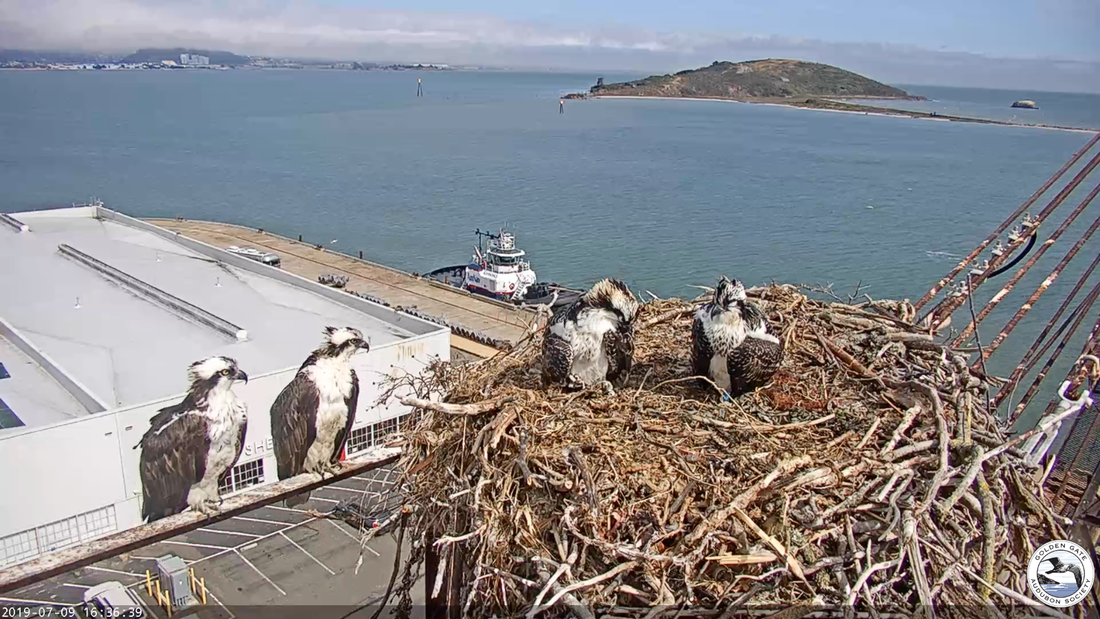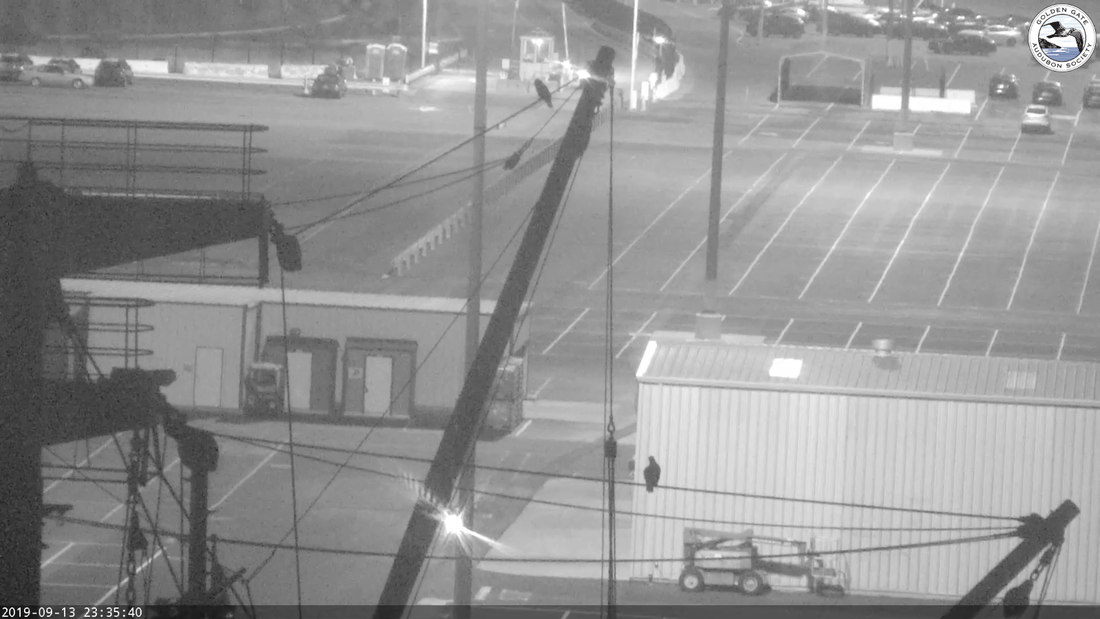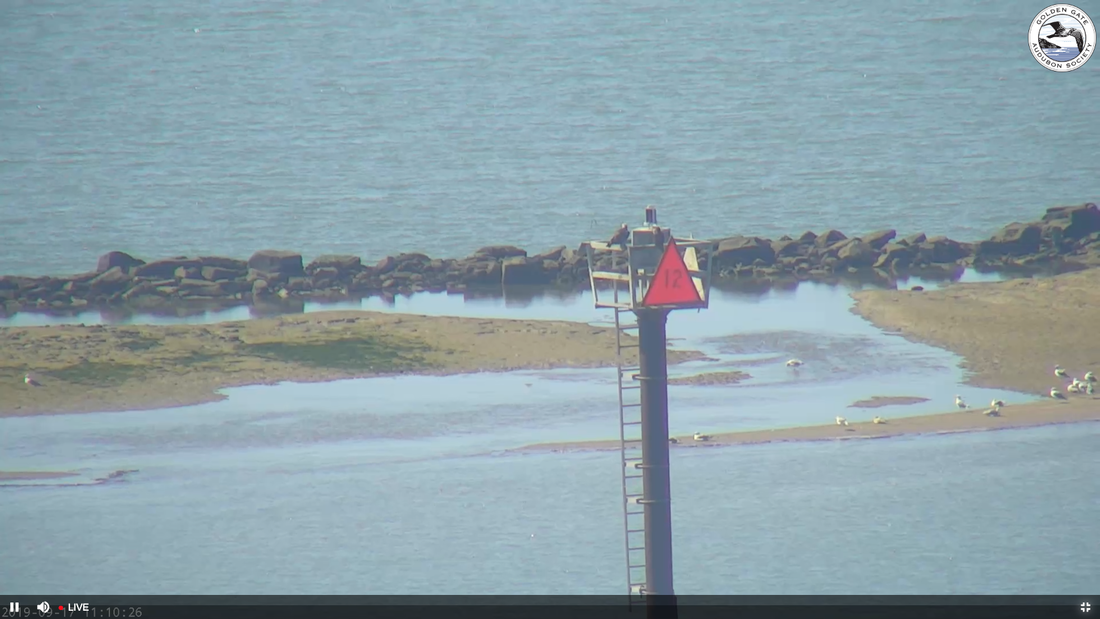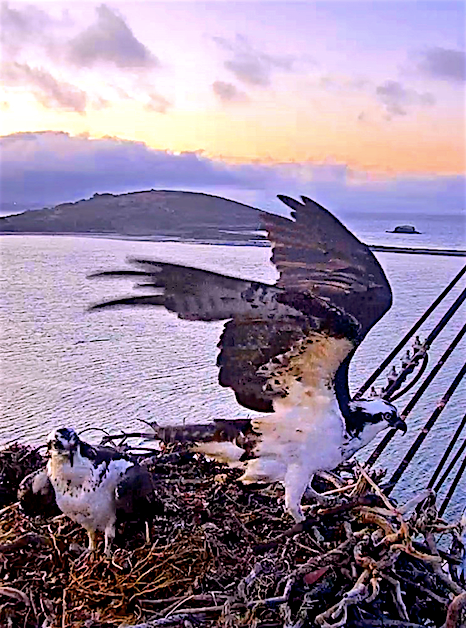Subsequent short flights occur soon after, but landings are still a bit unsure. Within two days, the fledgling is flying quite adeptly, using the wind, positioning its wings properly. Flights become longer and soon the fledgling appears back on the nest only to sleep and to eat. Gradually, they begin to sleep and sometimes feed elsewhere as well, but they come back to the nest when hungry.
It is not entirely known when they begin fishing. One study showed that ospreys are hardwired to fish and do not have to be taught. But it appears to observers on this cam that the adults do provide some support and/or demonstrations. The young osprey will return to the nest wet but without a fish, and start begging. And some have observed in the distance a young osprey inexpertly diving into the Bay and coming up without a fish, to appear wet on the nest a bit later. At any rate, the adult ospreys continue to feed their offspring as long as they're around. Richie ups the ante at this point, delivering over 40 fish a week .Rosie also pitches in now. The young ones come to the nest when hungry and watch, then scream, for a fish. They tend now to insist on their own fish and will mantle to protect their meal. Often two fish are delivered in a row, to appease both chicks. A final, touching sight of the osprey year is Rosie on the nest with a fish but no young ones around to eat it.
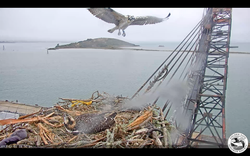 Whirley (WB) returning to the nest after fledge. July 3, 2017
Whirley (WB) returning to the nest after fledge. July 3, 2017 Les BB posted on August 20:Yesterday around 4 p.m. I saw the most beautiful sight from my deck in Brickyard Landing. I was thinking about Rivet and reached for my phone to log onto the cam. We heard an osprey calling from way above. Three ospreys soaring high above circling together going higher and higher. One continuing to call. Finally one broke off and headed South while the other two went higher and higher until they were out of our sight. I was filled with emotion thinking this may be the last time I see my beloved Rivet.
In 2018, there were three chicks and a different dynamic on the nest.The chicks interacted quite a bit and often argues, as siblings will do. They loudly yelled for fish and fought each other for possession. The two boys, Roemer (VW) and Victory (VU), both fledged on the same day, Roemer at 9:40 in the morning and Victory at 11 am on July 1. Brisa, the female and the youngest, followed five days later, on July 6 at 2:36 in the afternoon. There was little drama. They flew to the crane then back and practiced this subsequently, returning to the nest each time. Gradually, they learned to fish for themselves and soon left the nest. Brisa hung around after the two males left. Then she flew to the nearby Richmond Yacht Club nest and began to beg there. Finally, she seemed to be catching her own fish, and one day she disappeared, either to fly around or to migrate.
Last seen in the area: Peace-up (WP): Aug. 15, 2019; Kiskasit (ZK): Sept. 11, 2019
After the chicks have left the nest for good and become independent, Rosie and Richie hang out together for awhile until Rosie migrates. They also fix up the nest a bit, presumably to assert ownership. Then one day, Rosie migrates and Richie is left alone. He now spends time on the sand spit and elsewhere, making occasionally visits to the nest.
